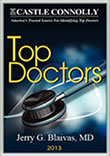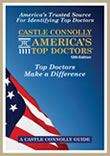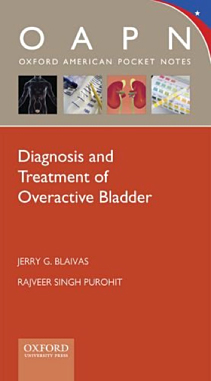Low Testosterone (Hypogonadism)
What are the Effects of a Low Testosterone?
A common reason for men to visit a urologist is because a patient was noted to have a low testosterone level. Low testosterone can potentially cause erectile dysfunction, decrease fertility, decrease the energy level, and decrease muscle and bone strength. It may also decrease interest in sex (libido) and cause male breast enlargement.
What is a Normal Testosterone Level?
There is some debate about what is the “normal” testosterone level, but there is an “optimal level” that maximizes the patient’s well being. So for example, a patient who is completely normal at a testosterone level of 220, does not necessarily need to have testosterone replaced; whereas the patient who has a testosterone of 280 or 300, but does find symptomatic benefit from having the testosterone replaced, we think, should continue their testosterone replacement therapy.
How do you check Testosterone Levels?
Typically with a blood test. There is some variability in the accuracy of tests used and some tests are more accurate than others. It is best to check testosterone in the morning as levels can fluctuate over the course of the day.
When Should You Think About Having your Testosterone Supplemented?
If a patient has symptoms and their low testosterone level is confirmed, we will offer testosterone supplementation.
How Is Testosterone Replaced?
Testosterone can be increased through tablets, injections, creams or patches.
What Tablets Can Increase my Testosterone?
There are some oral medications that will increase testosterone levels by stimulating your body to produce testosterone. The most common is Clomid (Clomiphene Citrate). Clomid stimulates the brain to make hormones (LH) to increase testosterone production by causing the testicles to make more testosterone (and also increasing sperm production). In addition to this, Clomid is a generic medication, and is usually relatively inexpensive. One of the disadvantages of Clomid is that the long term side effects of chronic use of these medications are not known and there is a concern that there may be risk for heart disease.
What are Other Options for Hypogonadism?
Another option for testosterone supplementation includes a cream such as AndroGel or patches or a deodorant like roll that can go in the armpit called Axiron. Alternatively, there are testosterone pellets that can be implanted under the skin. There are also various forms of testosterone injections available.
What are the Problems with these Medications?
The disadvantage to these forms of testosterone is that they can shut down the body’s natural production of testosterone and also potentially impair sperm production. The advantage for these medicines is they are fairly well tolerated by patients, although some patients may have erratic blood levels, experience skin irritation, or have some effects on the spouse or children.
How should it be followed-up?
After you begin treatment, your testosterone level should be checked in three to four weeks. If testosterone level increases sufficiently, but there is no symptomatic benefit, we will advice you to stop taking testosterone supplementation and look for alternative causes of your symptoms.
If after three to four weeks, the repeat testosterone level is normal and you feel benefit, then you continue taking the medication. Alternatively if the level is low, the dose of medicine will be increased or switched.
In general, we tend to be minimalist with regards to low testosterone. We do not replace it in every patient unless we find there is symptomatic benefit from the treatment. Most of these patients are able to continue taking the testosterone safely.
Is Prostate Cancer or an Enlarged Prostate (BPH) a Concern?
Not as much as you might think. In the past there had been concern about the risk of prostate problems including prostate cancer and enlarged prostate gland after taking testosterone supplementation. Current opinion is that as long as you are monitored carefully, testosterone supplementation in the majority of patients does not increase the risk of prostate cancer and is safe to take.
So should I Supplement my Testosterone?
Testosterone supplementation is an option in patients who have a low testosterone, but it is important to assess what symptoms are being treated and what the endpoint of the treatment is. If you have a low testosterone by test but have no symptoms, in the majority of cases we do not advise treatment. If you do have symptoms but correcting your testosterone does not alleviate your symptoms then we would look for other causes of your symptoms. If you have symptoms that improve with supplementation then it would be reasonable to continue the medicine under careful supervision.
———
Why Choose a Uro Center Urologist in New York?
The urologists at the Uro Center in New York are experts in their field, bringing academic and research based innovation to the clinical forefront. Our urology team specializes in areas of treatment such as: robotic surgery, reconstructive urology, men’s health & infertility, kidney stones, urologic oncology, penile implant surgery, urethral stricture, BPH, Urinary incontinence treatment, Mesh complications, Enlarged prostate treatment, Urodynamics, vesicovaginal fistula and female incontinence in New York.
Request an Appointment











